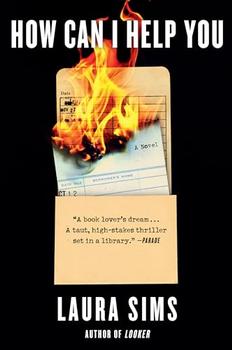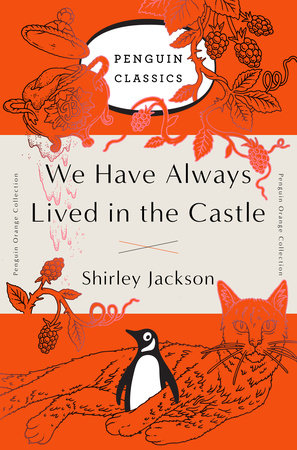Summary | Excerpt | Reading Guide | Discuss | Reviews | Beyond the book | Read-Alikes | Genres & Themes | Author Bio

From the author of Looker comes this "compulsive and unforgettable novel" (Mona Awad) of razor-sharp suspense about two local librarians whose lives become dangerously intertwined.
No one knows Margo's real name. Her colleagues and patrons at a small-town public library only know her middle-aged normalcy, congeniality, and charm. They have no reason to suspect that she is, in fact, a former nurse with a trail of countless premature deaths in her wake. She has turned a new page, so to speak, and the library is her sanctuary, a place to quell old urges.
That is, at least, until Patricia, a recent graduate and failed novelist, joins the library staff. Patricia quickly notices Margo's subtly sinister edge, and watches her carefully. When a patron's death in the library bathroom gives her a hint of Margo's mysterious past, Patricia can't resist digging deeper—even as this new fixation becomes all-consuming.
Taut and compelling, How Can I Help You explores the dark side of human nature and the dangerous pull of artistic obsession as these "transfixing dual female narrators" (Kimberly McCreight) hurtle toward a stunning climax.
The characters' dueling monologues are brilliantly arch and bookish, perfect for the story's claustrophobic setting. Margo describes Patricia's searching looks as making her feel "as if she's turning me over in her hands, inspecting my spine and pages for wear, thumbing my table of contents." The thrust and parry of their mutual fascination explores the dirty underbelly of obsession, one that at its heart is selfish and self-centered: what can the other do for me? Patricia is a willing audience to Margo's increasingly harsh and erratic behavior toward the regular patrons, scribbling everything down in her notebook hungrily. Knowing the truth about "my calamitous Jane," Patricia wrestles with the moral implications of this knowledge, but the artistic fire raging inside her—so long dormant—threatens to anesthetize her common sense. Indeed, it may just close the book on her life...continued
Full Review
(594 words)
This review is available to non-members for a limited time. For full access,
become a member today.
(Reviewed by Peggy Kurkowski).
 The power of a book is unquantifiable, depending on who reads it. When the character Margo Finch in Laura Sims's How Can I Help You catches her new colleague, Patricia Delmarco, fondly touching a particular title on the shelf at the Carlyle Public Library, it pulls her deep into a world where fantasy and reality often overlap.
The power of a book is unquantifiable, depending on who reads it. When the character Margo Finch in Laura Sims's How Can I Help You catches her new colleague, Patricia Delmarco, fondly touching a particular title on the shelf at the Carlyle Public Library, it pulls her deep into a world where fantasy and reality often overlap.
Fans of beloved author Shirley Jackson will be delighted to see the appearance of We Have Always Lived in the Castle in the pages of this frenetic literary thriller. Jackson (1916-1965) was an American novelist and short story writer known as a master of gothic horror and psychological suspense. Her most famous novel, The Haunting of Hill House (1959), has been adapted into movies and a television series, but ...
This "beyond the book" feature is available to non-members for a limited time. Join today for full access.

If you liked How Can I Help You, try these:

by Jean Hanff Korelitz
Published 2024
After the "insanely readable" (Stephen King) and "perfectly told" (Malcolm Gladwell) New York Times bestseller The Plot comes Jean Hanff Korelitz's equally captivating new novel: The Sequel.

by Maud Ventura, Emma Ramadan
Published 2024
In this suspenseful and darkly funny debut novel, a sophisticated French woman spends her life obsessing over her perfect husband—but can their marriage survive her passionate love?